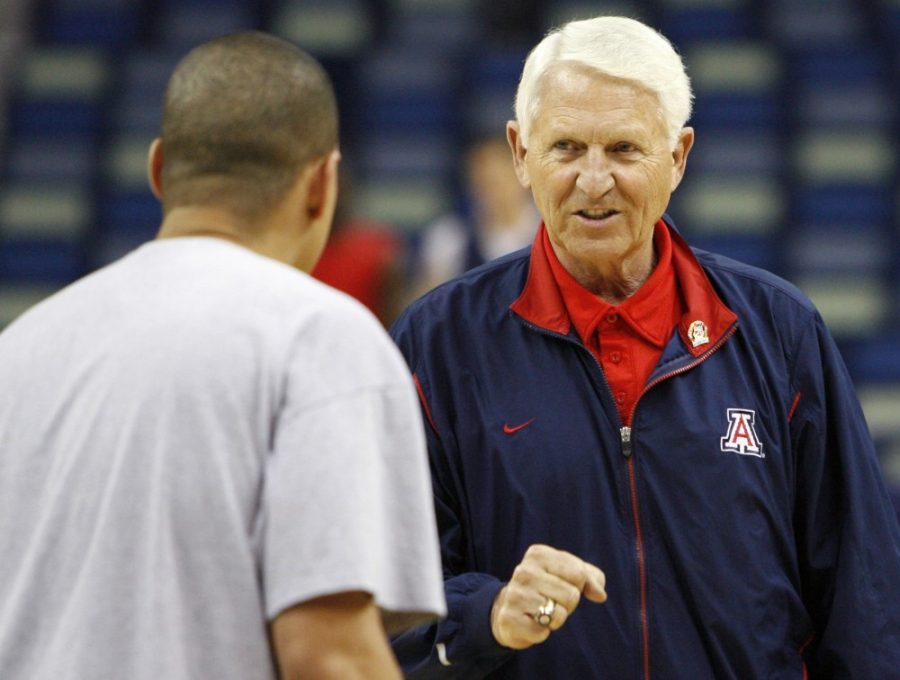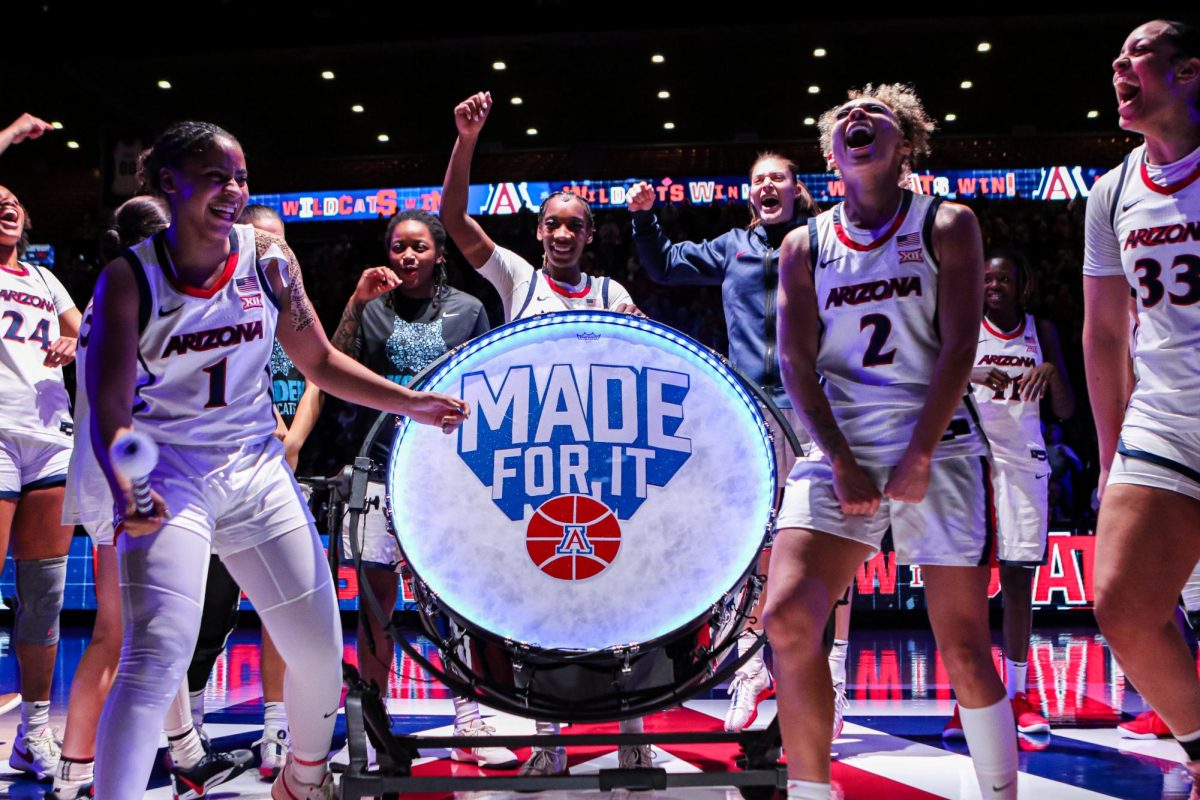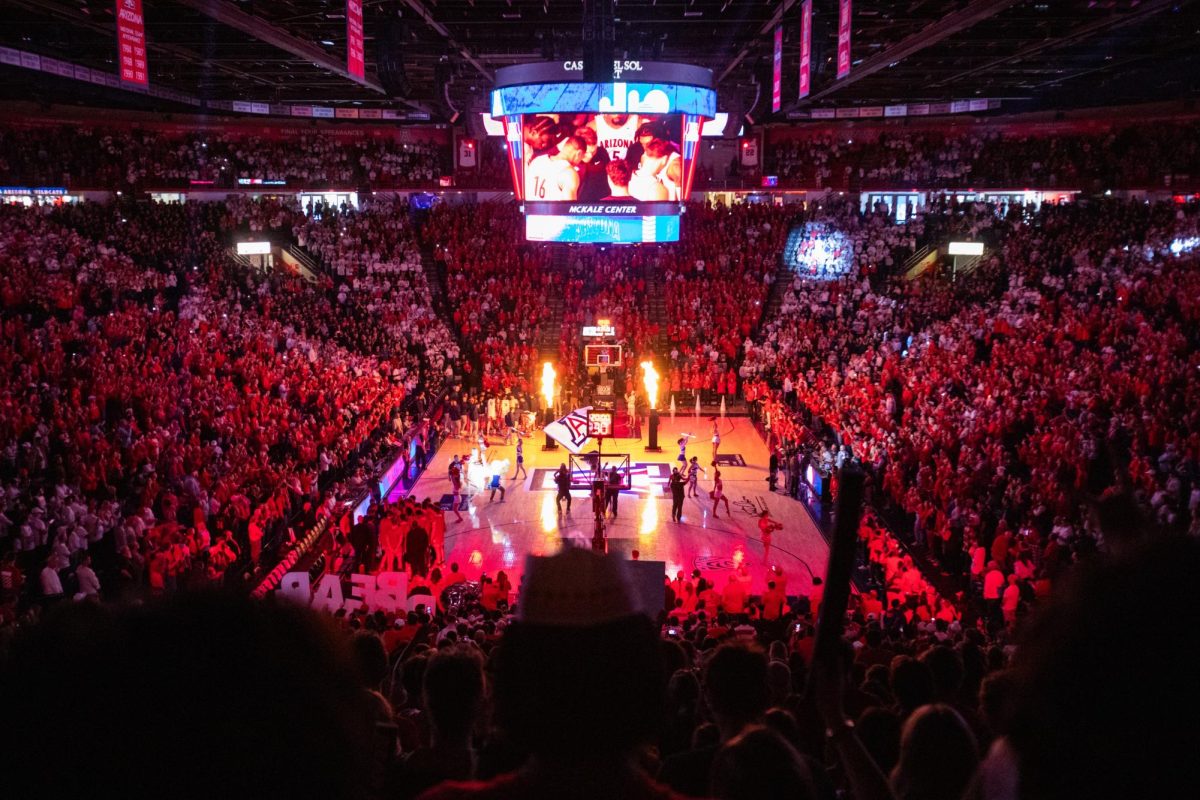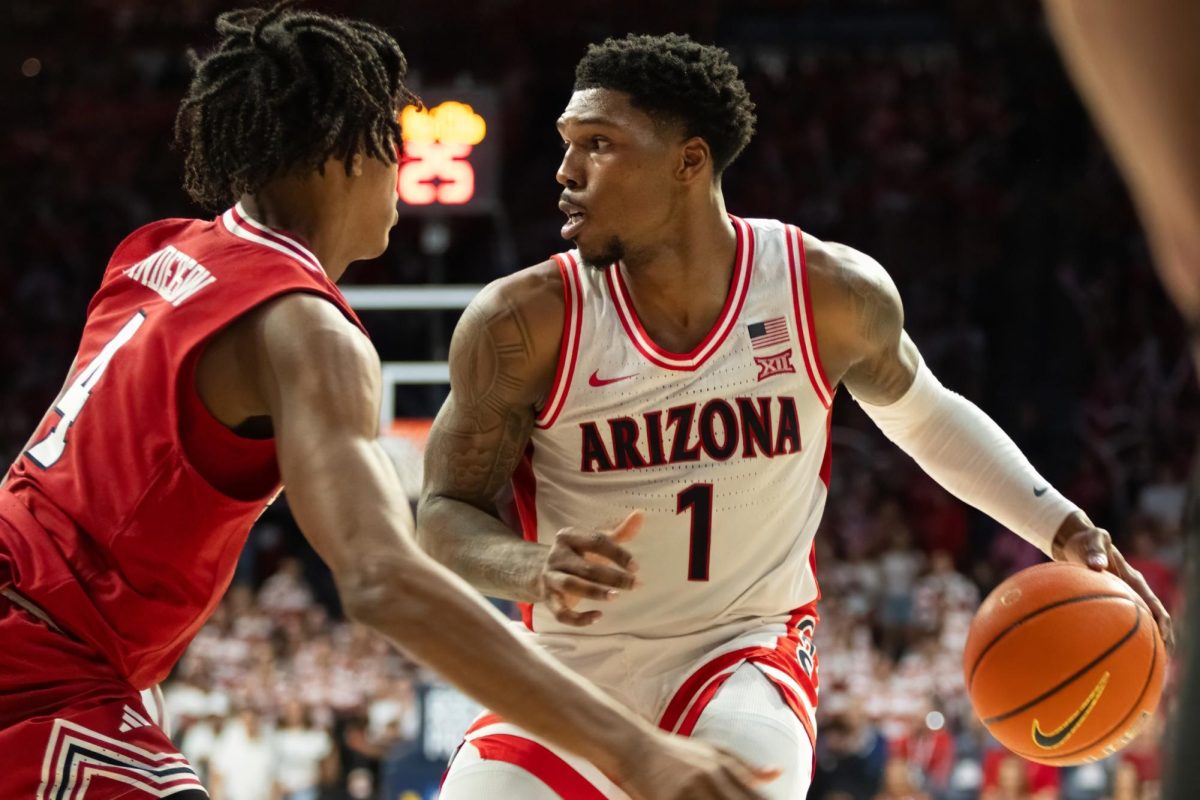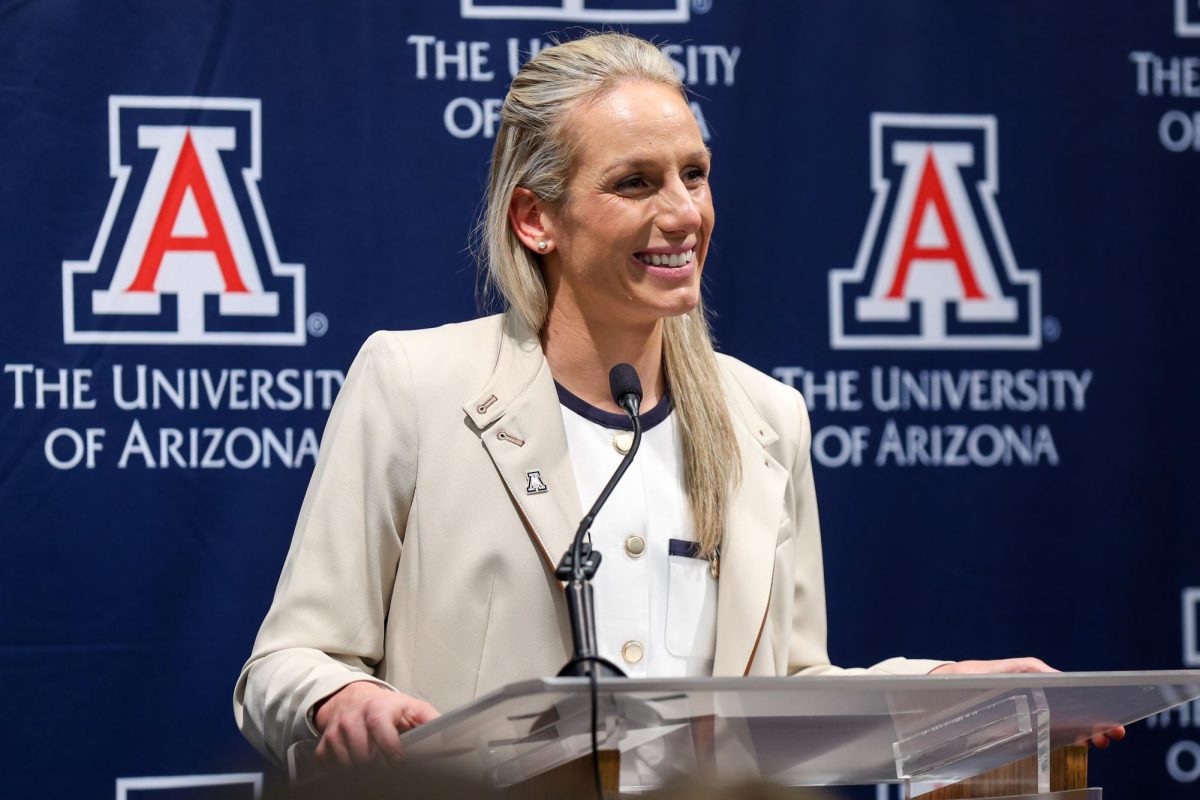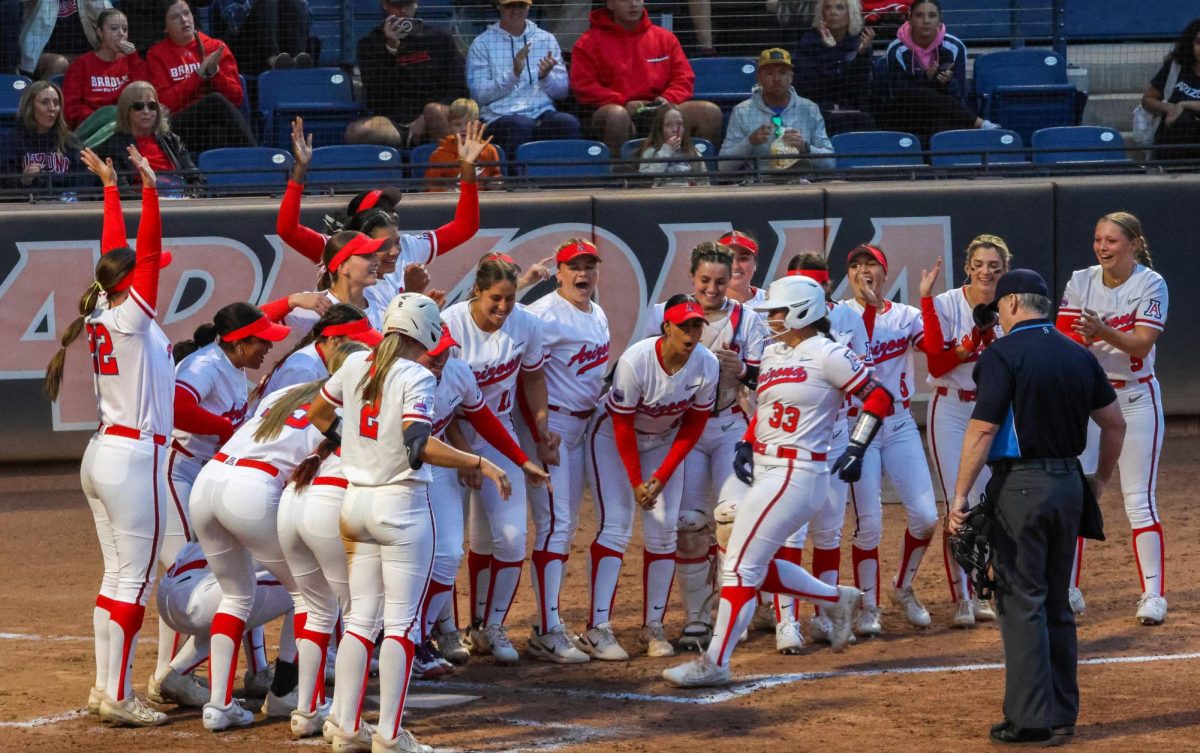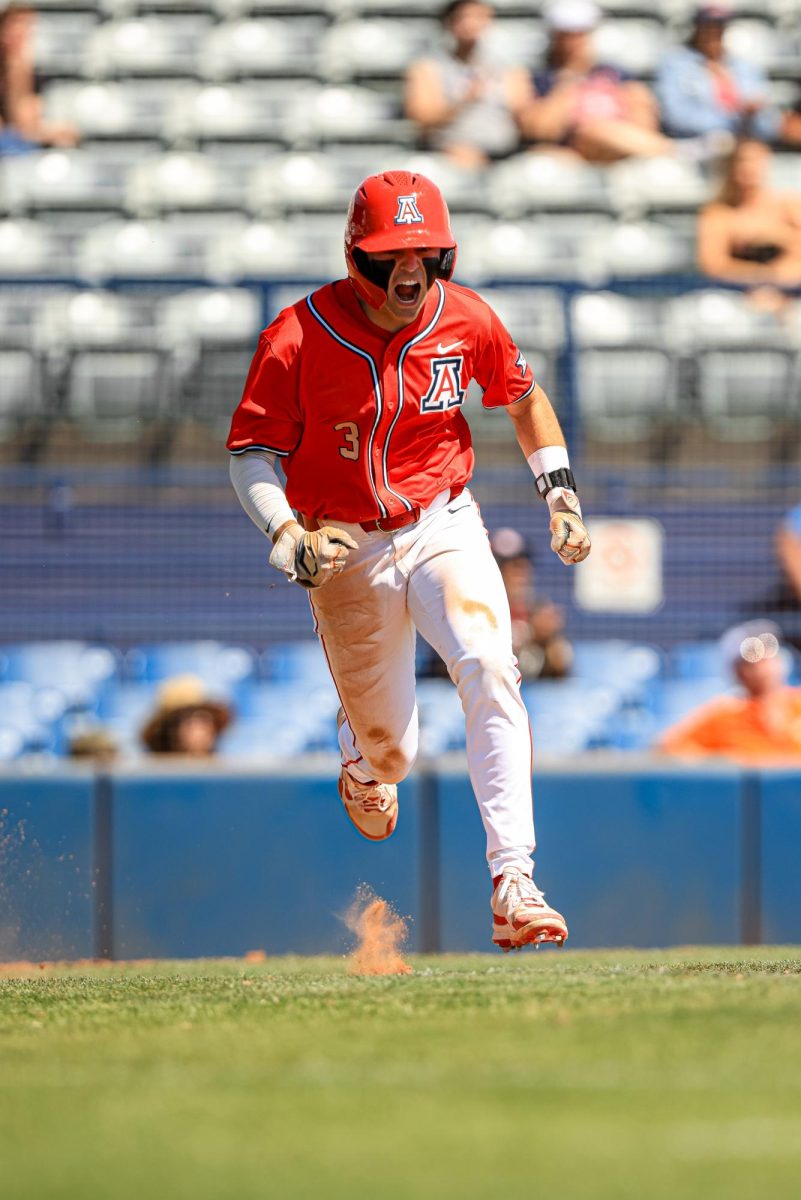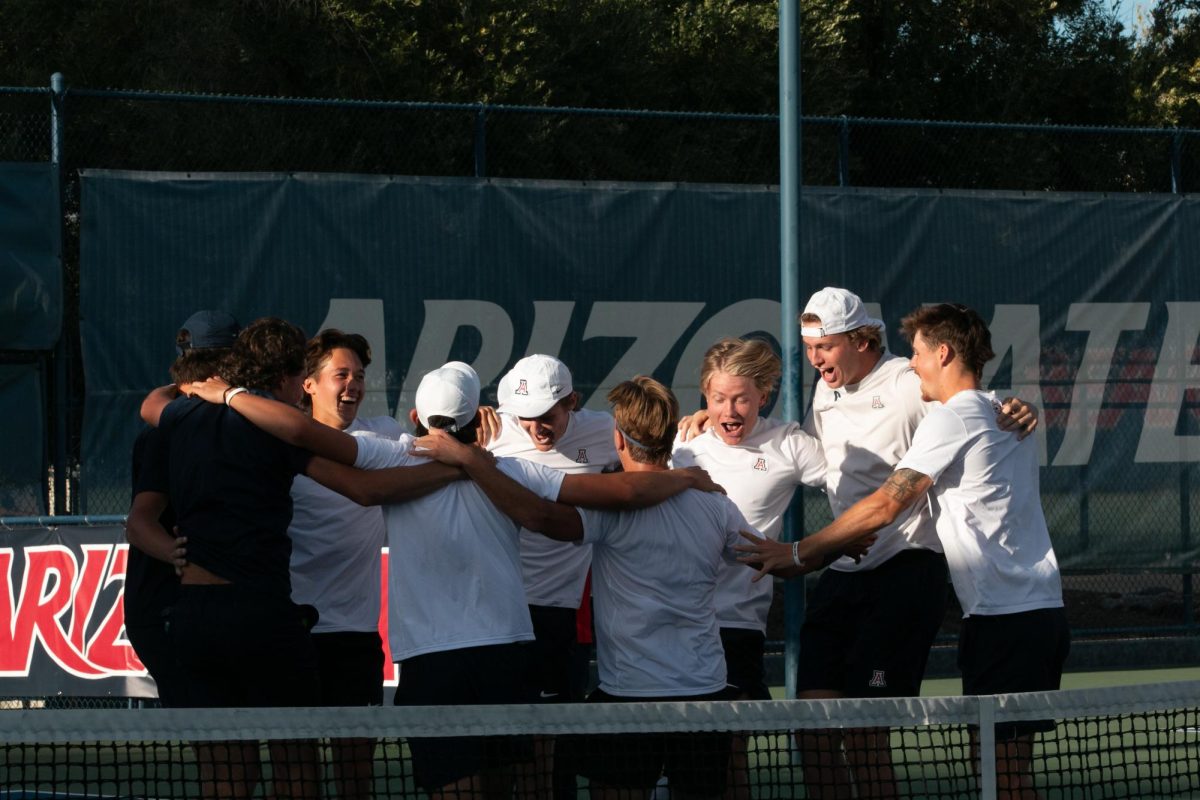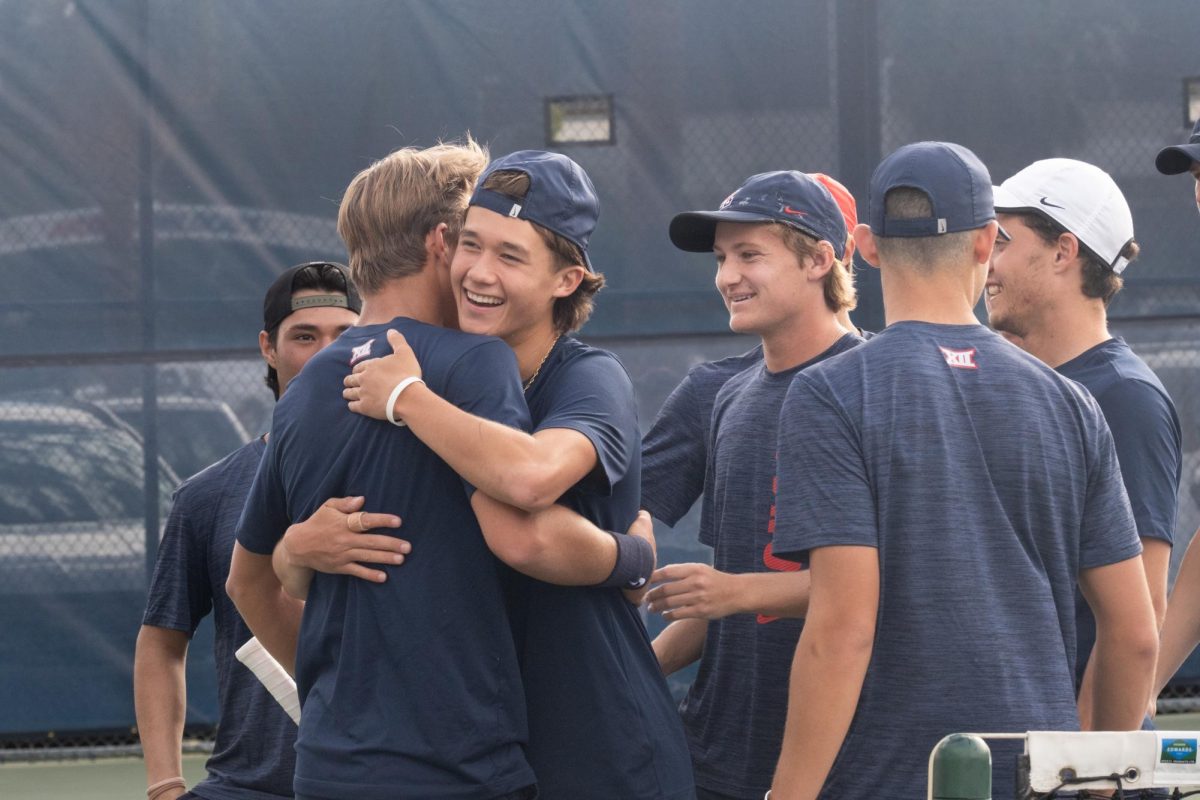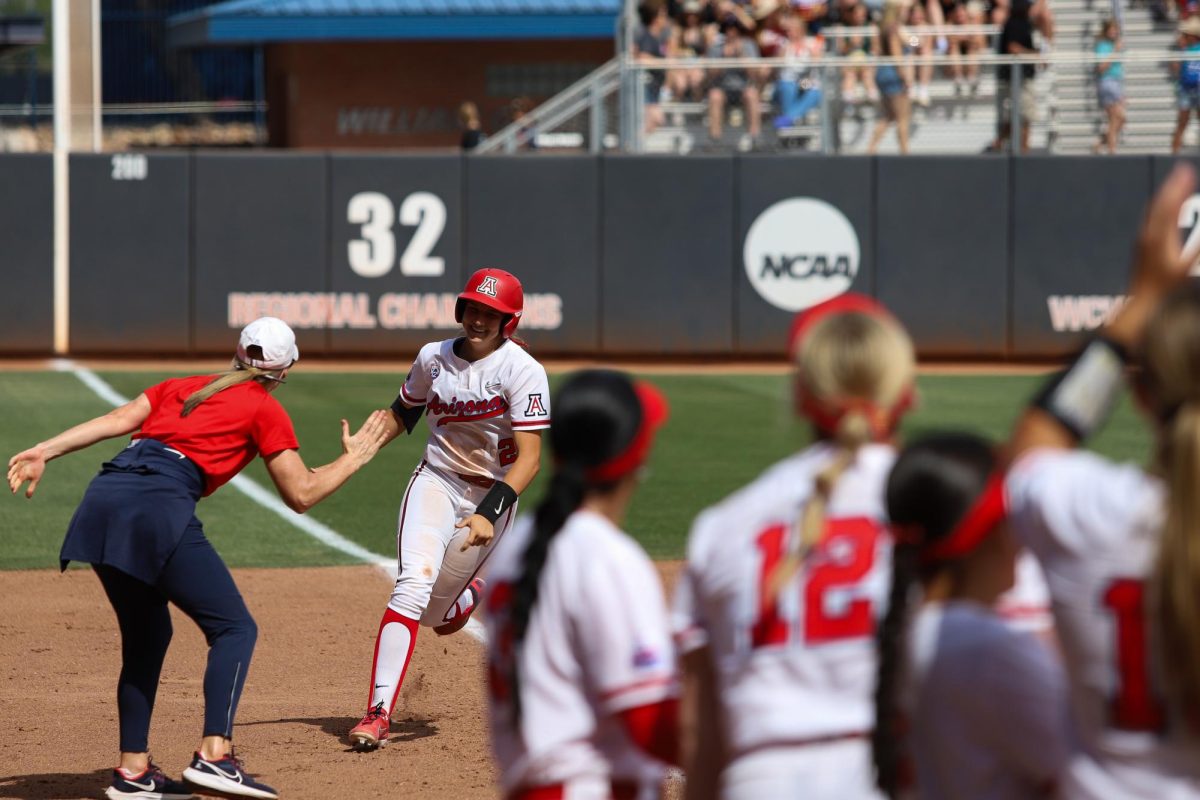When a white-haired man stepped foot in Tucson way back in 1983, the city changed and for the better. The University of Arizona men’s basketball program, which had seen some success under Fred Snowden, wasn’t the brand it is today until Robert Luther “Lute” Olson showed up.
What would come in the next 25 years was a form of excellence that, on many levels, was rivaled by only the great former UCLA basketball coach John Wooden. Both attributed their success to the golden rule, treating others how you’d want to be treated. Holding players to a standard and expecting them to maintain a level of class while treating them like the families that they left behind, is perhaps their greatest achievement.
What hangs in the rafters isn’t what defines what coach ‘O’, as some call him, means to Arizona and specifically Tucson. He is revered, both for his personal conduct and his ability to influence lives. It begins with his appearance and weaves down to his integrity and character, it is all part of the legendary story of Olson, one which has led his beloved university to place a statue in his honor on the walkway of the house he made famous, McKale Center.

To understand what Olson brought to the table you have to dig deep inside how he was able to have so much success. That begins with his appearance. Olson was no stranger to nice suits and he always made sure his hair was on point, outside of Bennett Davidson roughing it up after the 1997 National Championship win.
“He has this regal and towering presence that is undeniable,” said longtime beat writer Steve Rivera who covered Olson since 1991. “When he walked into a room back in the day he commanded the room, didn’t have to say a word, people knew who he was, kind of stood out and he still has that presence.”
Rivera hits on another part of Olson that is so invaluable, not only to his legacy, but also to the school, his commitment to the community. Senior Associate Athletics Director Erika Barnes arrived to UA in 1997 to play softball and has been in the department ever since. She says that Olson still gets requests to be at engagements and his willingness to go never wains. He is visible in the community and supports the school in any way he can, a testament to not just ensuring his own sport survived, instead, choosing to pull up the entirety of the athletic program, a large reason the school has the national recognition that it does.
“He has made this place his home and I think that speaks volumes,” Barnes said. “He didn’t want to retire and go somewhere else…when you have a wonderful experience you want to relish in that and enjoy yourself…I think he truly enjoyed his time.”
His relationships extended far beyond the basketball court as Barnes explained that Olson would often workout with his team and remembered that her teammates were often nervous to speak to him. However, Olson was always engaging with all the athletes and it is that engagement that has a longer lasting effect on student-athletes than wins and losses.
The perspective nationally is that Arizona is a power in college hoops. Olson is the sole reason for the rise of attention to that narrative. Beginning in 1983 and ending in 2005 the Wildcats reached four Final Fours, 11 regular season conference championships and Olson was named the national coach of the year in both 1988 and 1990. His crowning glory is two-fold, a national championship in 1997 and induction to the basketball hall of fame in 2002.

“I think he really showed that every program has an opportunity to win national championships and be here and continue to build a program that is attractive for student-athletes to and to want to come to southern Arizona,” Barnes said.
Such success doesn’t come without players that buy-in, especially when it comes to a small desert town that doesn’t have a historic reputation. Part of Olson’s legacy was being able to find talent where others didn’t and to secure players when he did. Former Wildcat Corey Williams was a standout at Batavia High School in Illinois. He was a sought after talent, but he knew Olson was the man to lead him in the right direction the first moment he saw him.
“Playing for coach Olson was really educational in a lot of ways,” Williams said. “At the time you didn’t know that he was teaching you about life. A lot of the things that were difficult about basketball weren’t really about basketball. In terms of the way he treated players, the way he communicated with you, the amount of responsibility that he placed on you… He was really in your face about whether or not you stepped up and did what you were capable of doing…In terms of who am I going to follow, where am I going to go, what program do I want to be a part of, when that guy is the head of a program it bends a lot of things in your favor.”
Being a coach and a mentor is undoubtedly what Olson will be remembered for. His statue will long be a reminder to the legacy he leaves behind. In this day and age of coaching and instant gratification, Olson saw the process of doing everything he could for young people through and maintains those relationships to this day. Williams says that Olson keeps tabs on all of his guys and that is why they have such a strong network of alums that continue in basketball. The story is not unusual, but the way Olson went about his approach was. No cussing, no classless behavior, just a straight to the core truth that gave his players the tools and confidence to succeed.
“He had a certain level of being distinguished just as a person,” Williams said. “He had this whole other personality that other coaches just didn’t have. Whether it was the hair or the suits he stood out on a personal level…A classy guy, sharp dressed, well-mannered, he really had the total package… To think about the restraint and respect he showed towards us young people was really impressive.”
His legacy will soon be cemented, literally, on campus, but it was solidified long before this upcoming moment. It was sealed when he chose to stay faithful to a school when he could have left for Kentucky. It wasn’t the glamor he was looking for, it was relationships with the players and people he has grown to know and love so well. He is Lute Olson, and Lute is Arizona basketball.
Follow Saul Bookman on Twitter



